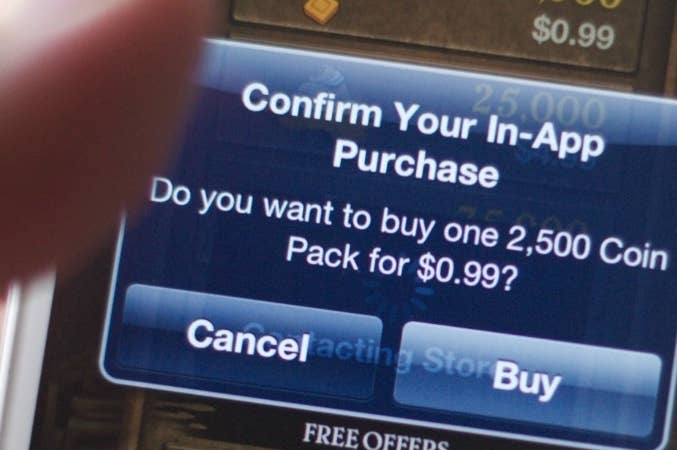Apple proposes compensation for children's IAPs in US
Users could claim for any purchases made by children without consent
Apple has proposed a scheme to offer compensation to the parents of US children which spent money on some in-app-purchases, acknowledging that not enough was done to prevent unauthorised child spending prior to the iOS 4.3 update.
Key to that update was a rolling back of the "15 minute window" feature, which enabled unlimited purchases to be made without additional verification for fifteen minutes after an App Store password was accepted. Many children, it is alleged, either took advantage of that window to intentionally download extra content, or were unaware that they were spending more of their parents' money.
A judge will consider the suitability of the proposed scheme on March 1, 2013. If passed, Apple may have to offer compensation to up to 23 million American App Store users. Each affected user would be offered a minimum of $5 (£3.20) App Store credit under the scheme, with claims of over $30 having the option of a cash equivalent instead, legal filings reveal.
Any App Store account users in the US who feel that their children may have made purchases must email their claim to Apple within 180 days of the proposal's acceptance, should that occur. No plans have yet been made to extend the scheme outside US borders.
Regular GamesIndustry International contributor Rob Fahey wrote about the potential legal and social dangers of targeting children with in-app-purchases in April, 2012.
"In fact, without careful controls being put in place, these cases could become extremely widespread," he wrote, "because the problem of children and teenagers overspending on F2P games cuts to the very heart of the psychology which drives the F2P business model."
Several specific child-focused titles and services have come under fire for the ease with which children are able to rack up large bills via IAP, with Capcom's hugely successful Smurf Village coming under particular scrutiny. Mobile apps are not alone in facing accusations, however, Microsoft's XBLA has also been responsible for some unexpected and unwelcome credit card bills.

